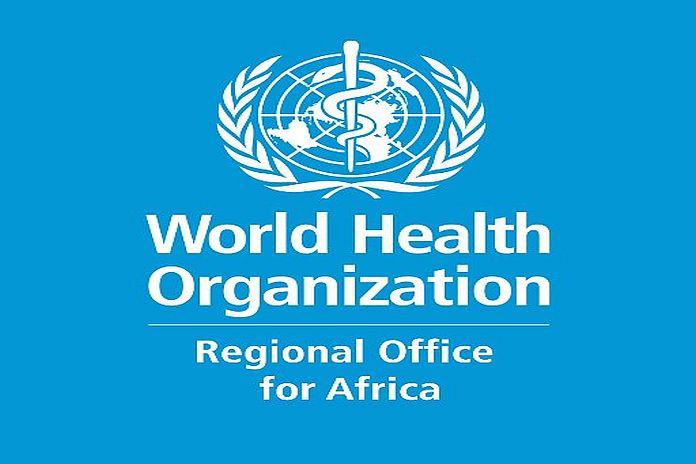GENEVA, Switzerland – The Medicines Patent Pool (MPP) and the World Health Organization (WHO), Afrigen Biologics (PTY) Limited, the Biologicals and Vaccines Institute of Southern Africa (Biovac), the South African Medical Research Council (SAMRC) and Africa Centres for Disease Control and Prevention (Africa CDC) have signed a letter of intent to address the global imbalance of manufacturing capacity for COVID-19 vaccines.
This letter of intent brings together partners to establish the South African mRNA technology transfer hub that will allow for greater and more diversified vaccines manufacturing capability, strengthen African regional health security and respond more equitably to the current COVID-19 pandemic and future pandemics.
Further to WHO’s announcement in June of the first COVID mRNA vaccine technology transfer hub in South Africa, this letter of intent sets out the terms of the collaboration and responsibilities between our organisations. Through a shared responsibility approach, the organisations will ensure the most suitable platform technologies are selected for the development of COVID-19 vaccines, that technology transfer is in place and that funding is secured for the hub, clinical studies and manufacturing support. It will also ensure that, crucially, this platform for innovation in vaccines is sustainable, inclusive, and will lead to vaccine security for Africa in the future.
“Inequitable manufacturing and distribution of vaccines is behind the wave of death, which is now sweeping across many low- and middle-income countries that have been starved of vaccine supply,” said Dr Soumya Swaminathan, chief scientist of the World Health Organization. “Building vaccine manufacturing capacity in South Africa is the first step in a broader effort to boost local production to address health emergencies and strengthen regional health security.”
The new collaboration brings together key actors from COVAX partners, industry, government, academia, funding agencies, WHO AFRO, which was represented by regional director Dr Matshidiso Moeti and the Africa CDC to collectively provide an enabling environment for the development of the first regional mRNA vaccine manufacturing production facility in Africa.
“At the Medicines Patent Pool, we look forward to offering our intellectual property expertise and experience, and to working closely with WHO and partners”, said Charles Gore, executive director, MPP. “Within the consortium, MPP will provide appropriate intellectual property analysis, define and negotiate terms and conditions of the agreements, provide alliance management and make use of our established robust selection process to allow further technology recipients to benefit.”
Afrigen is a biotechnology company incorporated in South Africa, which established the first adjuvant formulation laboratory in Africa and has a pipeline of vaccines in development. Afrigen has built strong research and development partnerships with leading Universities in South Africa and across Africa.
“We have recently completed a facility suitable for the establishment of a fully integrated mRNA pilot-scale production, formulation and fill-finish platform,” said Prof Petro Terblanche, managing director of Afrigen. “Our platform and facilities are well positioned to deliver on the hub’s objectives, and Afrigen will focus on ensuring the technical, scientific, quality control and quality assurance and regulatory teams so as to implement the mRNA Hub for Africa.”
Biovac is a South African specialist vaccines company that was established to revive local human vaccine production in Southern Africa. Alongside the development of bacterial vaccine technologies, the company has built modern facilities and secured high profile technology transfers from international vaccine companies.
“Biovac sources and supplies a comprehensive range of vaccines required by the South African government and its neighbouring countries including childhood disease vaccines among others, and more recently COVID-19 vaccines,” said Morena Makhoana, chief executive officer of Biovac. “It is a long-held desire of Biovac to ensure that the full value chain of vaccines is developed in our continent and our aim is to assemble state of the art manufacturing capacity and help ensure the transfer of mRNA technology and know-how as quickly as possible.”
South African Medical Research Council (SAMRC) has decades of experience in managing large research consortia and local and international funding programs, in both the research and innovation domains. The SAMRC is leading South Africa’s research and innovation response to COVID-19.
“Throughout the pandemic, the South African Medical Research Council has been actively funding, conducting and facilitating research and development,” said Dr Michelle Mulder, executive director, Grants, Innovation and Product Development (GIPD) of the SAMRC. “As part of this new collaboration our domain will be facilitating product and clinical development so that we can bring new products to market, allowing maximum participation of African countries in developing and testing context-appropriate products.”
Africa Centres for Disease Control and Prevention (Africa CDC), is a specialized technical institution of the African Union that strengthens the capacity and capability of Africa’s public health institutions as well as partnerships to detect and respond quickly and effectively to disease threats and outbreaks, based on data-driven interventions and programmes.
“Over the last few weeks there is a worrying increase in the number of cases across Africa and COVID-19 variants are causing a shocking wave of COVID-19 hospitalisation and death,” said Dr John Nkengasong, director of the Africa CDC. “Our objective is to ensure Africa has timely access to vaccines to protect public health security, by establishing a sustainable vaccine development and manufacturing ecosystem in Africa. As well as public health social measures, it is critical the world shares vaccine technologies now with African countries while also building up the manufacturing capacity across the region to help battle back against COVID-19 and also to leave a legacy for future pandemics.”





